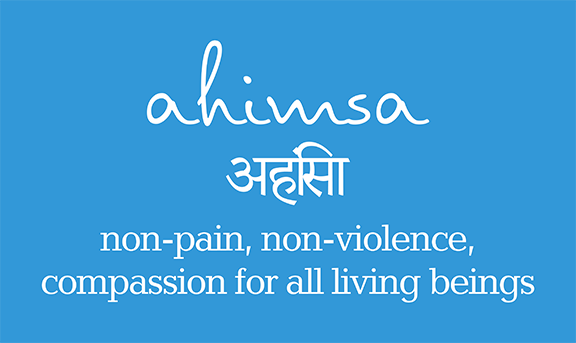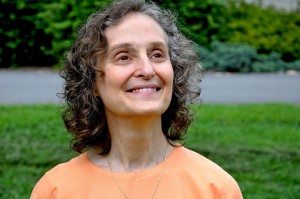 In this monthly series on the Yamas and Niyamas, Swami Karunananda offers wisdom and reflections on applying these foundational principles of Yoga in daily life.
In this monthly series on the Yamas and Niyamas, Swami Karunananda offers wisdom and reflections on applying these foundational principles of Yoga in daily life.
Sutra 2.35: In the presence of one firmly established in non-violence, all hostilities cease. —from The Yoga Sutras of Patanjali
Ahimsa means non-violence—in thought, word and deed. In its fullness, it is an expression of universal love, treating everyone and everything with kindness and compassion, with awareness of the divine presence that pervades all creation.
If we want the nations of the world to give up enmity, mistrust and conflict, we can foster that process by cultivating loving-kindness and forgiveness in our own hearts. Since we are part of the world, personal practice translates into global benefit. Any change we wish to see can begin with us.
REFLECTIONS FOR THE PRACTICE OF AHIMSA:
- Do I move through life gently, or am I rough or careless in the way I handle things?
- Are my thoughts or actions harmful toward myself or others in any way? How could I do better?
- Do I have any forgiveness issues, am I holding onto any resentments, that I can try to resolve and release?
- Are my communication patterns non-violent?
Do I listen carefully to what others have to say and allow them to finish speaking before I respond? Or do I try to dominate interactions?
b. Am I ever sarcastic?
c. Do I try to be humorous at someone else’s expense?
d. Am I ever rude or harsh toward others?
e. How can I do better? - How do I express myself emotionally? Do I consider the feelings of others when I express my own?
- Is anger ever an issue for me?
- Obstructions to ahimsa are often fear and desire. We may hurt others because we are afraid that they may harm us or because our better judgment is overshadowed in the pursuit of fulfilling our desires. Consider how fear or desire may impact your ability to observe
Pick some way to practice ahimsa over the next month. Honestly evaluate your capacity. Set a goal that is a little challenging but doable. Select a good consequence (like more meditation, pranayama, or a dietary observance for the day) in case you slip to help keep you on track. Daily record your experience and insights in a spiritual journal.
About the Author:
 Swami Karunananda is a senior disciple of Sri Swami Satchidananda. In 1975, she was ordained as a monk into the Holy Order of Sannyas. She has had almost 50 years experience teaching all aspects of Yoga and specializes now in workshops, retreats, and teacher training programs that focus on the science of meditation, the philosophy of Yoga, personal transformation, and Yoga breathing techniques for better health and well-being. She developed, and for 30 years has taught, the Integral Yoga Teacher Training programs in Raja Yoga and in Meditation.
Swami Karunananda is a senior disciple of Sri Swami Satchidananda. In 1975, she was ordained as a monk into the Holy Order of Sannyas. She has had almost 50 years experience teaching all aspects of Yoga and specializes now in workshops, retreats, and teacher training programs that focus on the science of meditation, the philosophy of Yoga, personal transformation, and Yoga breathing techniques for better health and well-being. She developed, and for 30 years has taught, the Integral Yoga Teacher Training programs in Raja Yoga and in Meditation.
Swami Karunananda served as president of Satchidananda Ashram–Yogaville in Virginia and in California, as well as director of the Integral Yoga Institutes in San Francisco and in Santa Barbara. She currently serves on the Board of Trustees, and as the chairperson of the Spiritual Life Board at Satchidananda Ashram–Yogaville, Virginia.
Interested in fostering interfaith understanding and harmony, she is featured in the interfaith documentary entitled, With One Voice. She also compiled and edited the Lotus Prayer Book, a collection of prayers from various faith traditions, and Enlightening Tales as told by Sri Swami Satchidananda. She served as contributing editor for The Breath of Life: Integral Yoga Pranayama, as well as a senior writer for the Integral Yoga Magazine. In her book, Awakening: Aspiration to Realization Through Integral Yoga, she describes the spiritual path and provides guidance for the journey.

